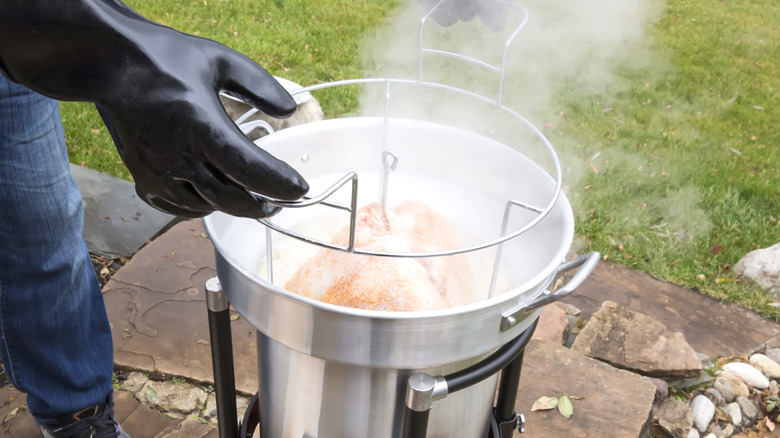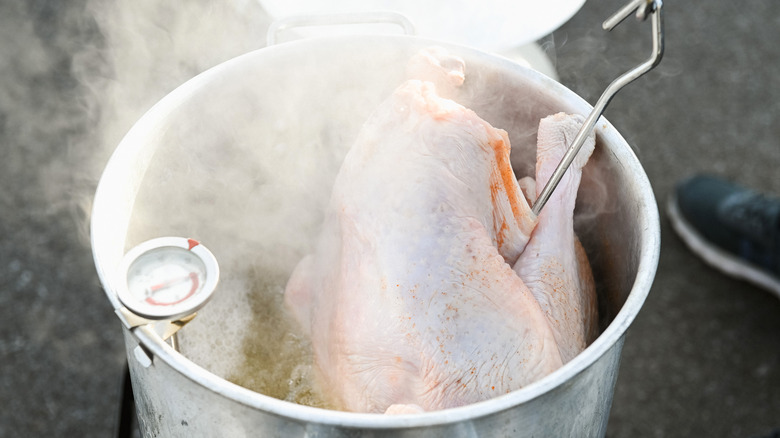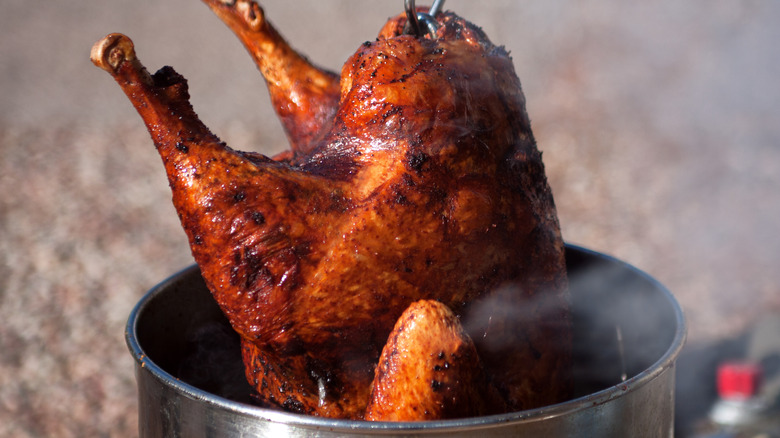How Long Should It Take To Deep Fry A Whole Turkey?
Every Thanksgiving, finding a viral video of someone attempting a deep-fried turkey that ends in some mishap, usually involving overflowing oil, is practically inevitable. Nonetheless, people continue to do so — and for good reason. If done correctly, deep frying a turkey produces juicy meat and extra crispy skin. Arguably, the primary appeal of frying a turkey is that it doesn't take as long to cook.
When you roast a turkey in the oven, you can expect to wait several hours until it's done, or about 15 to 20 minutes per pound. That isn't precisely ideal if your guests are extra hungry or you need the oven space. On the other hand, deep frying a turkey requires only three to four minutes per pound. This means it takes about 15 to 20 minutes for a 5-pound turkey. However, even if you're feeding a crowd with a 20-pound turkey, you'll still be able to get dinner on the table in 60 minutes, or 80 at most, by deep frying it.
Why deep frying a turkey doesn't take as long
Whether your recipe calls for deep frying or roasting a turkey, you'll likely notice that the recommended temperature for both methods falls within the same range of 325 to 350 degrees Fahrenheit. So, why does the deep-fried one cook faster? The temperature may technically be the same, but how the heat is transferred differs significantly.
When roasting a turkey, it relies on indirect heat as the hot air circulates. When deep frying, the oil comes in contact with every inch of the meat, leading to a shorter cooking time. Based on this logic, you might assume that cooking a turkey in boiling water would be as fast as deep frying, but heat transfer also occurs more efficiently in fat. In this case, your frying oil. As a result of this accelerated cooking process, the meat is also less likely to dry out.
The fastest way to deep fry a whole turkey
Opting for a deep fryer over an oven will save you some time. However, if you don't want to wait on your turkey any longer than you have to, starting with a fully defrosted bird is critical. Similar to frying chicken, attempting to fry a partially frozen turkey can result in undercooked meat on the inside, even if the exterior skin achieves the perfect crispiness.
Spatchcocking or butterflying your turkey can also move things along. This technique involves removing the turkey's backbone and flattening the breastbone. Doing this exposes more of the turkey's interior to the hot oil, facilitating faster and more even frying, ultimately decreasing the cooking time by approximately 25%. Whether you choose to employ this method or not, make sure the white meat is at least 165 degrees Fahrenheit and dark meat is 175 degrees Fahrenheit before you remove your turkey from the fryer and serve it.


